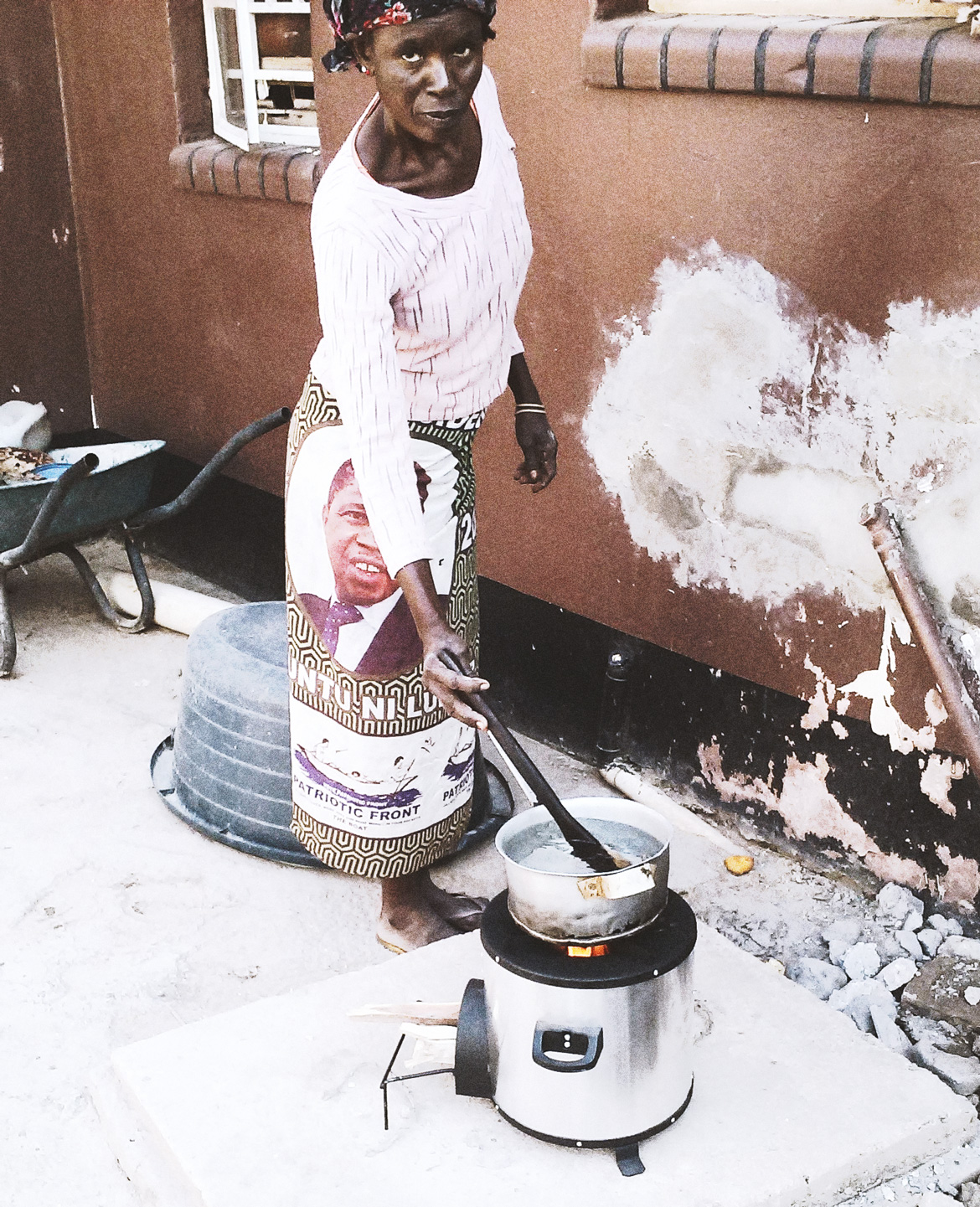Program—
Clean Cooking Stoves
Background
Respiratory illnesses are a major public health challenge in sub-Saharan Africa, where many households depend on solid fuels such as wood and charcoal for cooking and heating. The combustion of these fuels generates high levels of air pollutants, such as fine particulate matter (PM2.5), that can penetrate deep into the lungs and cause inflammation, oxidative stress, and tissue damage. Exposure to these pollutants has been associated with increased risk of non-communicable respiratory diseases (NCRDs), such as asthma, chronic bronchitis, chronic obstructive pulmonary disease (COPD), and allergic rhinitis. These diseases can impair lung function, reduce quality of life, and increase mortality. Women who perform the vast majority of cooking and housework, and small children at home bear a disproportionate burden of this problem.

Our desire is to distribute over 20,000 clean cooking stoves this year.
Our Model
To address this problem, we are working rapidly to transition homes from conventional, polluting stoves to cleaner and more efficient stoves with near-zero particulate emission. Over the last 18 months, 8,100 clean cooking stoves have been provided to vulnerable families in Matero, Zambia, an impoverished area with high rates of poverty. Families have reported positive feedback on the new stoves, as they provide warmth, reduce cooking time, and save fuel costs. These stoves are designed with a patented air regulation technology that minimizes the emissions of CO, PM2.5, and greenhouse gases. We anticipate that the project will have a significant impact on the health of the families by reducing their exposure to harmful smoke and particulates. Moreover, we have provided training and support to the families to enable them to use the new stoves as a source of income by selling cooked food in the local market.
Goals
Our plan is to provide 20,000 high efficiency cooking stoves by the end of 2024. This will benefit more than 100,000 residents.